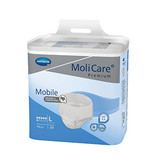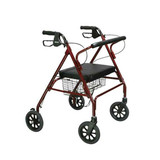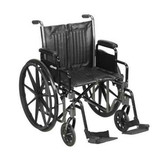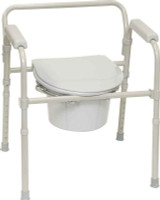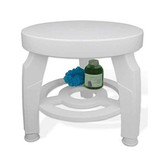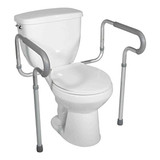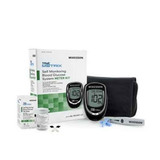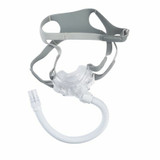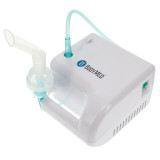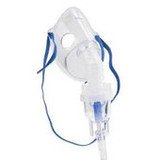
The Caregiver Guide - Understanding and Supporting Depression
Depression is a far more common condition than we would like to admit, affecting millions of Americans of all ages. In fact, according to a National Alliance on Mental Illness (NAMI) publication, roughly 1 in 5 U.S. adults experience mental illness each year. Although, according to a report by the Centers for Disease Control and Prevention, the condition hits the 18 to 24 age bracket the hardest, it’s still disturbingly high among older adults, with 1 in 7 people over 65 affected.
Unfortunately, it’s also one of the most underestimated health conditions and often goes undiagnosed and untreated in older adults, potentially leading to more serious health issues. Whether you’re an older adult struggling with persistently low mood or you’re caring for someone who might be, understanding depression and its risk factors is a very important first step toward getting help and improving the overall quality of life.
Understanding Depression
The cause cannot be reduced to any single trigger or even a finite list of specific reasons. Researchers believe it's a complex medley of biological, psychological, and social factors. One thing is certain, though: this is not just a passing feeling of melancholy caused by an unpleasant experience. It’s a feeling of profound sadness and hopelessness coupled with a general loss of interest that can last for weeks or even months. Let’s look at some of the known or suspected causes.
Biological Factors
Deficiencies in neurotransmitters like serotonin, norepinephrine, and dopamine, which regulate mood, sleep, appetite, and motivation, are thought to contribute to depression. Genes may also affect brain chemistry, stress response systems, and emotional regulation. Chronic medical conditions like chronic pain, diabetes, heart disease, and thyroid problems can also increase the risk due to emotional stress or loss of self-esteem and quality of life.
Psychological Factors
People with depression often develop negative thinking patterns by dwelling on negative thoughts or being constantly pessimistic. People with low self-esteem may struggle with feelings of worthlessness and inadequacy. At the same time, traumatic or stressful life events like job loss, relationship breakups, the death of a loved one, or financial difficulties can trigger depressive episodes, especially in individuals who are already vulnerable.
Social Factors
Lack of social engagement and loneliness significantly increase the risk of depression. Experiencing physical, emotional, or sexual abuse in childhood often has a long-lasting impact on mental health. At the same time, poverty, unemployment, or lack of access to quality healthcare can create chronic stress and hopelessness, all of which can contribute to a higher risk of falling into a depressive state.
Depression Symptoms
Diagnosing the condition is very difficult as it manifests in many different ways, with the severity and specific symptoms varying from person to person. In fact, it often goes undiagnosed because people do not recognize the symptoms. It’s important, therefore, to learn to spot the signs.
Emotional Symptoms
Persistent sadness or hopelessness, frequent crying spells, loss of interest in once-enjoyed activities, irritability or frustration, and feelings of worthlessness or excessive guilt.
Behavioral Symptoms
Social withdrawal, avoiding friends and family; neglecting personal hygiene; sudden weight loss or gain; difficulty concentrating, making decisions, or remembering things; increased fatigue or lack of energy; engaging in risky or self-destructive behaviors.
Physical Symptoms
Headaches, body aches, digestive problems, changes in sex drive, difficulty sleeping or sleeping too much.
Long-Term Health Risks
As we have already mentioned, depression is not just feeling down about something. It’s a serious clinical condition that can have significant consequences if left untreated.
Depression is a major contributing factor to suicide, which, according to the National Alliance on Mental Illness (NAMI), is one of the leading causes of death in the United States. It can also weaken the immune system and increase the risk of developing chronic physical conditions such as heart disease, diabetes, and stroke.
Persistent sadness and hopelessness may cause social withdrawal and affect relationships with family and friends. Work and school performance may suffer due to difficulty concentrating or making decisions and lacking motivation.
Treatment Options
This is a life-long condition for which there is no cure. There is, however, a spectrum of effective treatment options available that can alleviate symptoms. Although the risk of recurrence is always in the background, these treatments can be so effective that the patient can continue a normal lifestyle. Let’s take a look:
Medication
Antidepressant medications can help improve the balance of brain chemicals like serotonin and norepinephrine.
Psychotherapy
Talk therapy helps patients develop healthy coping mechanisms and understand their emotions. There are various evidence-based therapies:
Cognitive Behavioral Therapy (CBT)
CBT helps patients overcome negative thought patterns that contribute to depression.
Interpersonal Therapy (IPT)
This technique focuses on improving communication skills and resolving interpersonal conflicts that may trigger a depressive state.
Lifestyle Changes
Adopting healthy lifestyle habits can significantly improve mood and support recovery from depression. These changes include:
Regular Exercise
Regular physical activity, even in small doses, is as effective as medication in managing mild to moderate depression. Aim for at least 120 to 150 minutes of moderate-intensity exercise per week.
Healthy Diet
A balanced diet rich in fruits, vegetables, whole grains, and lean protein can improve energy levels, mood, and overall well-being. It's also important to limit processed foods, sugary drinks, and unhealthy fats.
Providing Support at Home
A caregiver plays a pivotal role in a patient’s recovery from depression. Learning about the condition, how to manage it and how to support the patient will make this role a lot less stressful and much more effective.
Educate Yourself
Learn as much as possible about depression, its symptoms, treatment options, and available resources. Reputable organizations like the National Institute of Mental Health (NIMH) and the National Alliance on Mental Illness (NAMI) offer a wealth of information and resources.
Communicate Openly
Create a safe and non-judgmental space that encourages your patient to talk openly and honestly about their feelings. Listen actively without interrupting, and offer empathy and support.
Be Patient
Recovery takes time and requires consistent effort. Practice and encourage patience and celebrate victories along the way.
Encourage and Support
Depression can destroy the motivation to engage in daily activities. Offer practical help and support with household chores, errands, or transportation. Encourage your patient to participate in mentally and physically stimulating activities.
Set Boundaries
It's important to manage expectations and set healthy boundaries. Communicate them clearly and enforce them strictly. Also, take time for yourself to recharge and avoid burnout.
Stay Connected
Encourage your patient to stay connected with friends and family. Help them find support groups or online communities where they can connect with others going through similar experiences.
Conclusion
Depression is a real and often misunderstood or underestimated medical condition. It is also very treatable. As a caregiver, your support and understanding make a significant difference to the patient throughout the recovery period.
This is a tough challenge in anybody’s book, but remember, you need not take it on alone. Between family and friends and specialist support organizations like the NIMH and NAMI, numerous resources are available to support you in your caregiving role.
Remember, at LL Medico, we understand a caregiver's challenges and strive to help reduce the stress of managing senior care supplies. Our Autoship feature lets you schedule regular deliveries of all your supplies exactly when you need them. Whether it’s adult diapers, over-the-counter medications or nutritional supplements, we ensure you always have what you need. Call (855) 422-4556 or email [email protected] today.

















